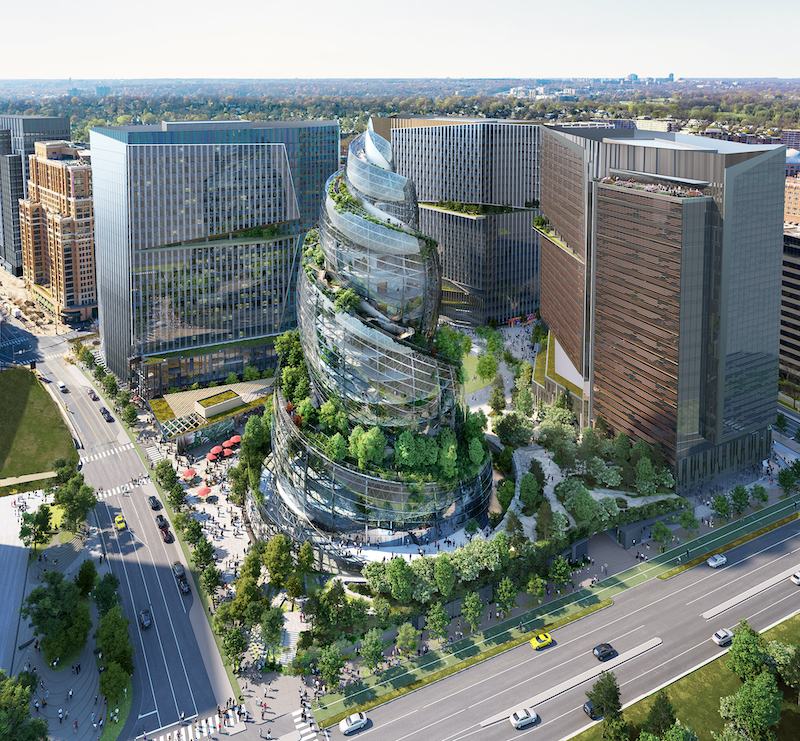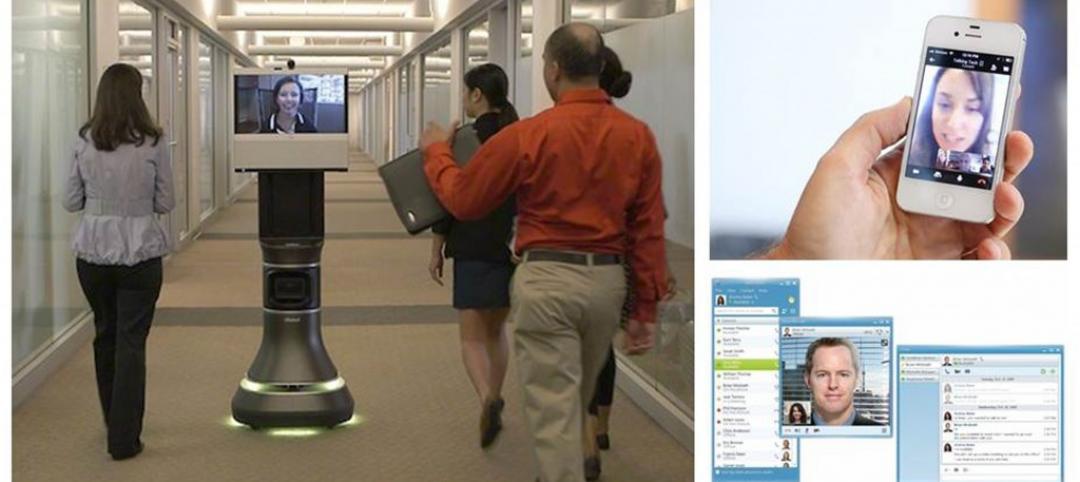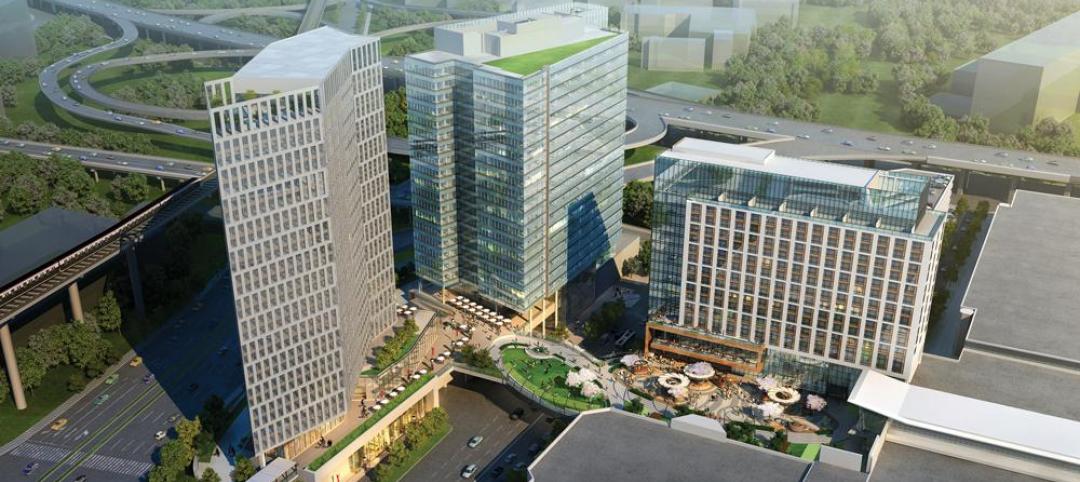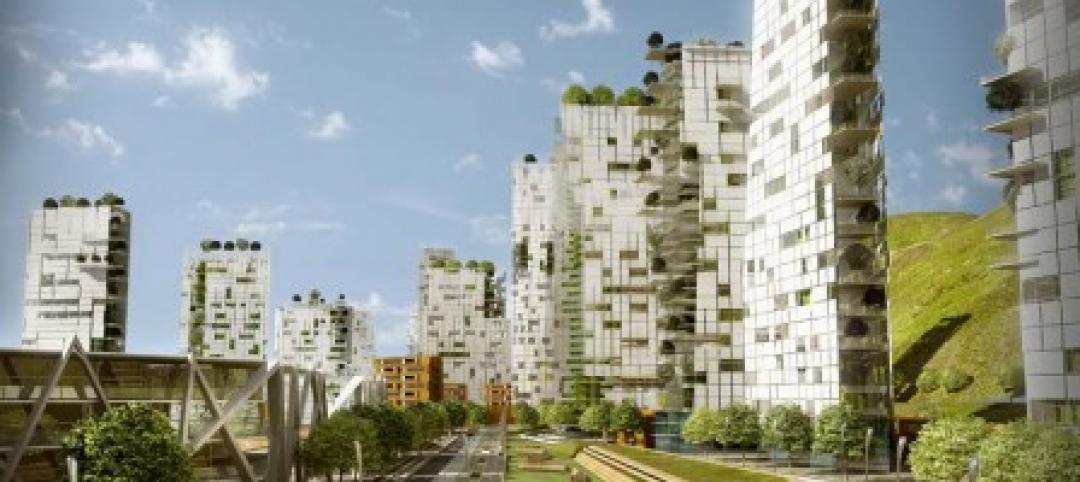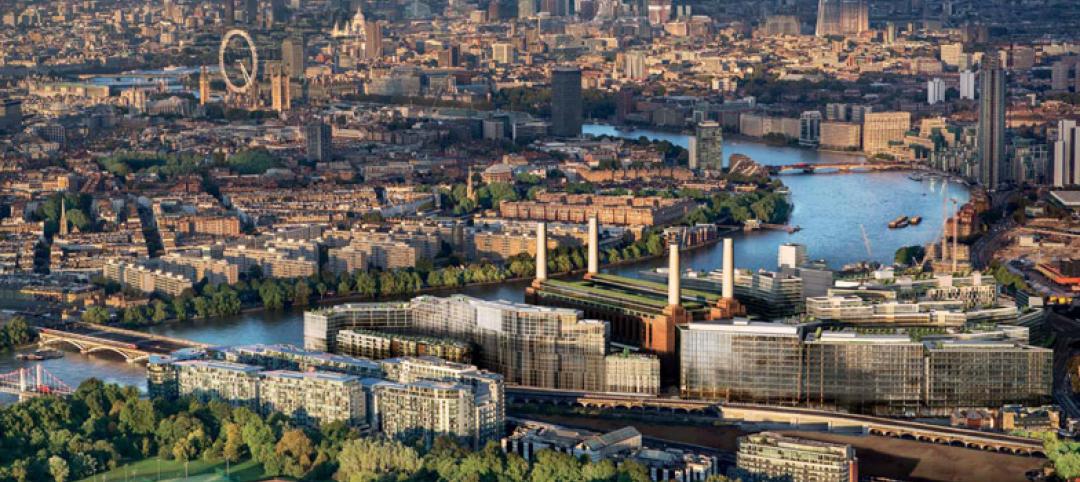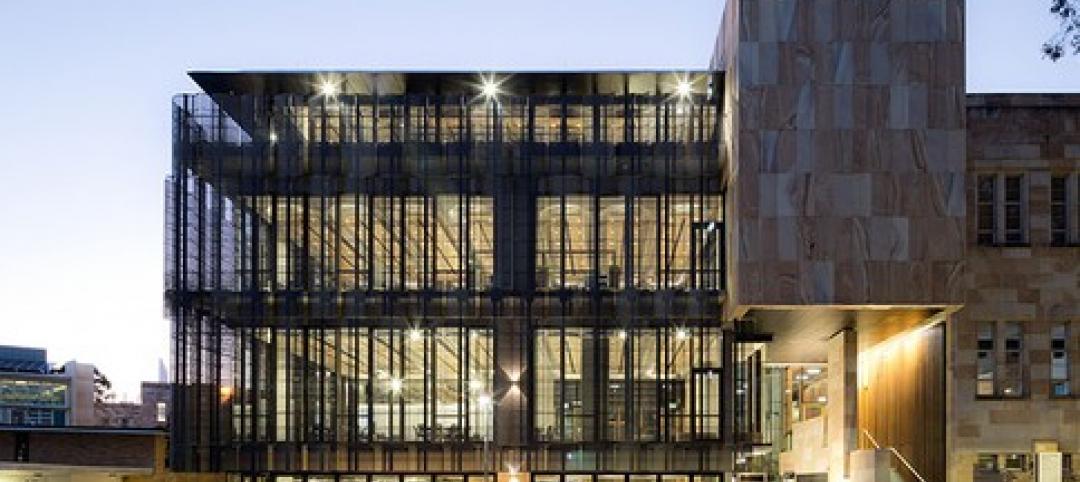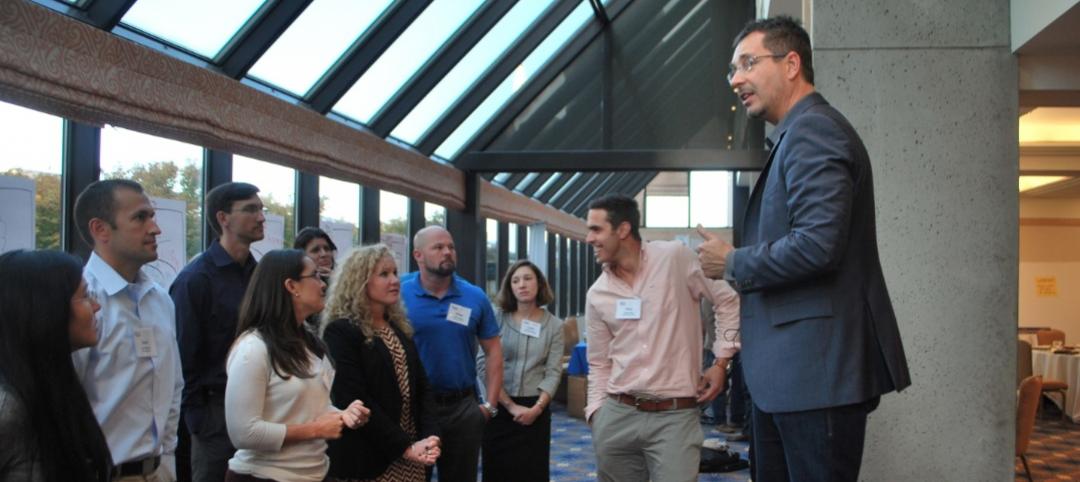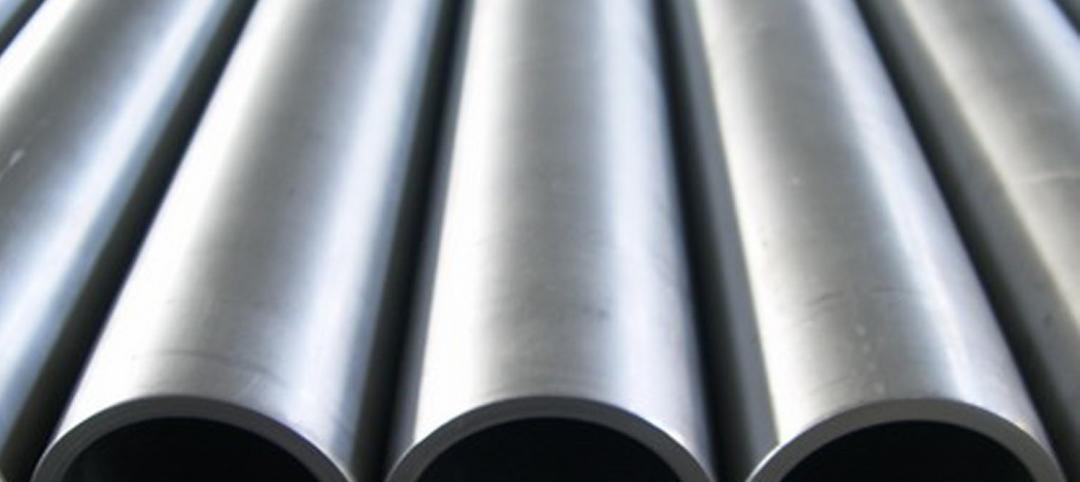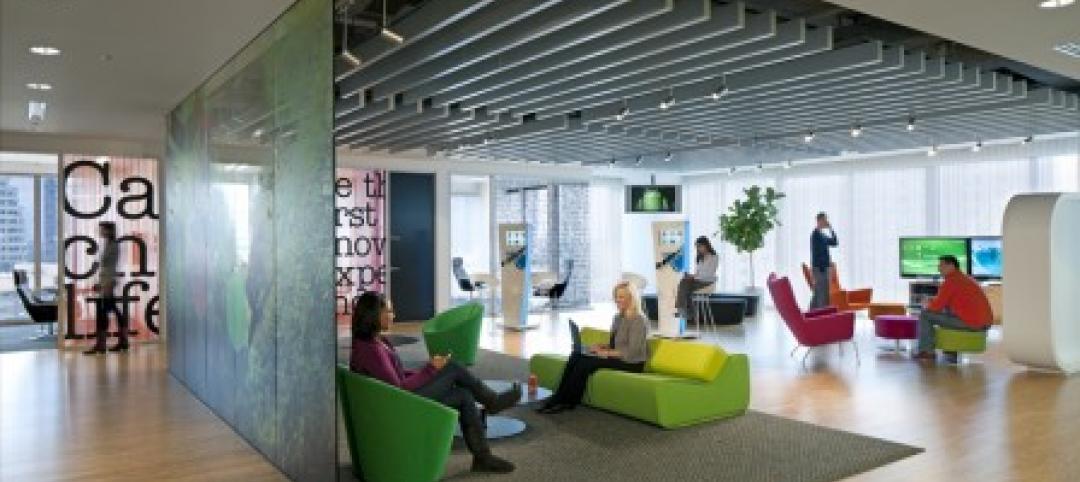The second phase of Amazon’s headquarters complex in Arlington, Va., will be a 2.8-million-sf campus with three 22-story buildings that target LEED Platinum certification.
The Phase 2 site, called PenPlace, will be anchored by The Helix, a 370,000-sf spiral shaped building that, according to Amazon, will feature indoor garden spaces, an Artist in Residence program, a 1,500-person meeting center, and an outdoor hill climb open to the public on select weekends every month. (SCAPE is PenPlace’s landscape architect.)
Amazon sent its latest designs to the Arlington County Board on Tuesday. If the plans are approved, ground breaking for PenPlace could be early next year, with delivery scheduled for 2025.
Amazon—which in 2019 faced community opposition to its plans to build a headquarters complex in the New York City borough of Queens—is proactively presenting itself to Arlington residents as a friend of the community and a corporate citizen. The tech giant has donated more than $19 million to local nonprofits, and recently announced a $2 billion Housing Equity Fund whose starting investment will be to create more than 1,300 affordable homes in Arlington’s Crystal City neighborhood, where PenPlace would be built.
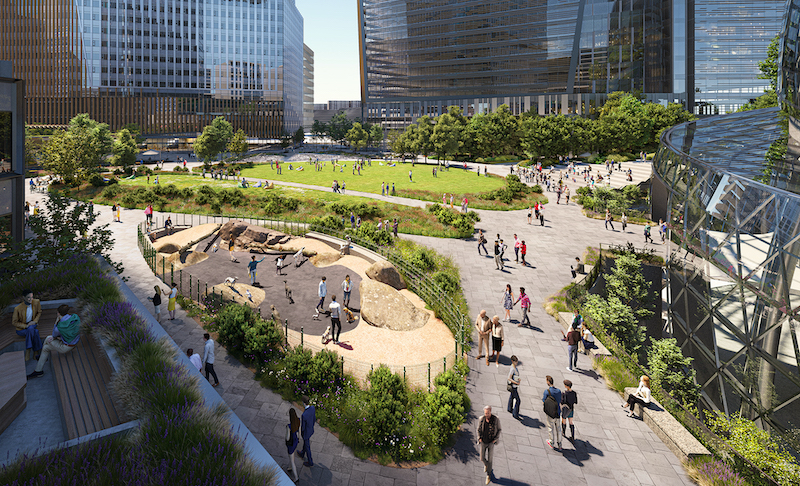
A dog park will be one of the community amenities that Amazon's headquarters will offer.
The proposed design for PenPlace includes:
•2.5-plus acres of public open space and connected walkways, a dog run, a 250-seat amphitheater, woodlands, and art installations;
•Over 950 onsite bike spaces, including 180 for visitors. There will be one-quarter mile of new protected bike lanes;
•100,000 sf for retail pavilions, walkways, and space for a dozen local dealers and eateries;
•A child-care center;
•A plaza that supports farmers markets and food vendors; and
•A 20,000-sf community space that supports education, science, and technology, and is flexible enough to accommodate small and large meetings and classes.
PenPlace’s sustainable features include an onsite water reclamation system for reducing cooling, irrigation, and flushing demand by 50%. Site-wide landscape will integrate and clean 100% of the complex’s rainfall runoff.
The project will include an all-electric central heating and cooling system that runs on 100% renewable energy from a solar farm in southern Virginia. (Amazon has pledged to be net-carbon-neutral as a company by 2040.)
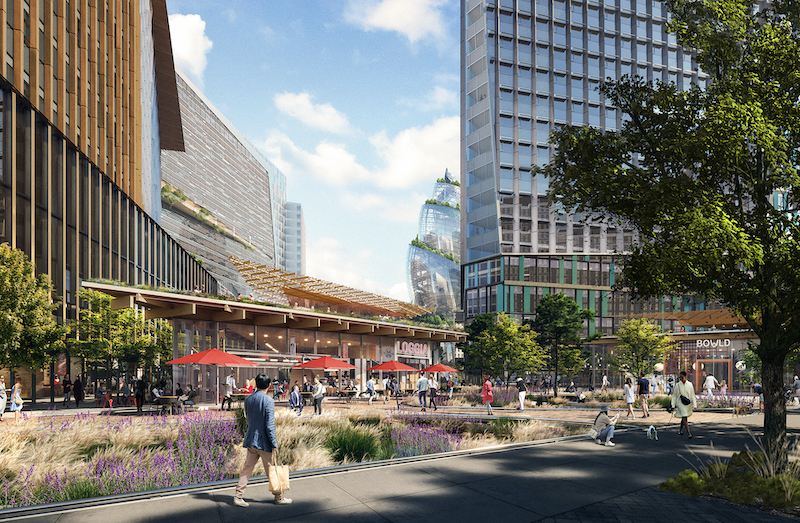
PenPlace will include 100,000 sf for local retail tenants and a pavilion.
GEOMETRY IN ACTION
Amazon’s headquarters in Seattle is distinguished by The Spheres, ball-shaped workplaces that are also home to over 30,000 plants from 30-plus countries. Amazon is looking to achieve a similar connection with nature for its Arlington workers via The Helix, which will offer a variety of alternative work environments. (Whiting-Turner Construction is PenPlace’s contractor.)
The Helix will have two walkable paths of landscaped terrain that spiral the outside of the buildings and feature plants familiar to hikers of Virginia’s Blue Ridge Mountains.
As at The Spheres, Amazon plans to offer public tours of The Helix several weekends a month.
A MULTI-BILLION INVESTMENT

Once completed, Amazon's Arlington headquarters will distribute 850,000 sf of office space over five buildings.
PenPlace would be north of where Amazon is building Metropolitan Park, a 2.1-milllion-sf mixed-use project. The first phase includes two 22-story towers, as well as some renovated office space.
Metropolitan Park—designed by ZGF Architects, with Clark Construction as its builder and James Corner Field Operations as its landscape designer—is scheduled to start opening in 2023, John Schoettler, Amazon’s Vice President of Global Real Estate Facilities, told WUSA9. Amazon states that Metropolitan Park will have 500 bike spaces, over 2.5 acres of new and renovated park space, 69,000 sf of ground-floor retail and a 700-person meeting center available to the public.
Amazon’s initial investment in its headquarters plans has been $2.5 billion. All told, Amazon intends to have 850,000 sf of office space for 25,000 employees in Arlington, Va., by mid-decade.
Related Stories
| Oct 30, 2013
15 stellar historic preservation, adaptive reuse, and renovation projects
The winners of the 2013 Reconstruction Awards showcase the best work of distinguished Building Teams, encompassing historic preservation, adaptive reuse, and renovations and additions.
| Oct 30, 2013
Why are companies forcing people back to the office?
For a while now companies have been advised that flexibility is a key component to a successful workplace strategy, with remote working being a big consideration. But some argue that we’ve moved the needle too far toward a “work anywhere” culture.
| Oct 30, 2013
11 hot BIM/VDC topics for 2013
If you like to geek out on building information modeling and virtual design and construction, you should enjoy this overview of the top BIM/VDC topics.
| Oct 28, 2013
Urban growth doesn’t have to destroy nature—it can work with it
Our collective desire to live in cities has never been stronger. According to the World Health Organization, 60% of the world’s population will live in a city by 2030. As urban populations swell, what people demand from their cities is evolving.
| Oct 23, 2013
Gehry, Foster join Battersea Power Station redevelopment
Norman Foster and Frank Gehry have been selected to design a retail section within the £8 billion redevelopment of Battersea Power Station in London.
| Oct 21, 2013
University of Queensland’s net-zero building features biomimicry-based design
University of Queensland’s Global Change Institute (GCI) building in Australia showcases on-site solar energy sources, biomimicry-based design features, and the first structural use of low-carbon concrete in the country.
| Oct 18, 2013
Meet the winners of BD+C's $5,000 Vision U40 Competition
Fifteen teams competed last week in the first annual Vision U40 Competition at BD+C's Under 40 Leadership Summit in San Francisco. Here are the five winning teams, including the $3,000 grand prize honorees.
| Oct 18, 2013
Researchers discover tension-fusing properties of metal
When a group of MIT researchers recently discovered that stress can cause metal alloy to fuse rather than break apart, they assumed it must be a mistake. It wasn't. The surprising finding could lead to self-healing materials that repair early damage before it has a chance to spread.
| Oct 18, 2013
Sustainability expert: Smart building technology can have quick payback
Smart building technology investments typically pay for themselves within one or two years by delivering energy savings and maintenance efficiencies.
| Oct 14, 2013
How to leverage workplaces to attract and retain top talent
Just about every conversation I have related to employee attraction and retention tends to turn into an HR sounding discussion about office protocols, incentives, and perks. But as a workplace strategist, I need to help my clients make more tangible links between their physical workplace and how it can be leveraged to attract and retain top talent. Here are some ideas.


